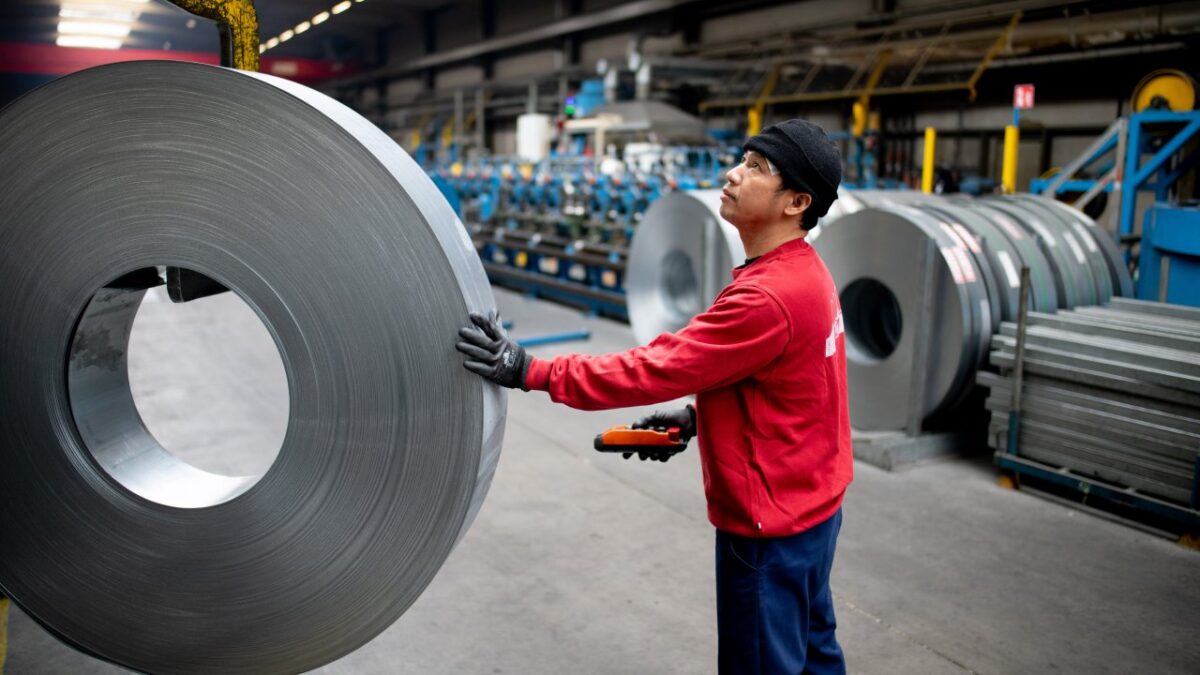“Waiting five months for Filipino workers? Better than not finding anyone.”
In Belgium, technically skilled personnel are hardly available, and the talent pool in Eastern Europe also seems exhausted. The staffing agency Job Talent is now casting its nets in the Philippines in search of technical personnel. However, clients must exercise patience.
The steel company BRT, based in Maasmechelen (Belgium), has been grappling with labor shortages for years. Specializing in the production of welded tubes and pipes for the fencing industry, the company processes steel coils using high-tech machinery. Finding technical personnel has been nearly impossible for the past 15 years, says CEO Stefan Talpe. “There are always vacancies.” Particularly, the so-called tube mill operators—individuals who can operate the high-tech machines—appear to be a dying breed. Talpe describes the work as challenging. “Such an operator has enough skills to pursue a desk job. In the warehouse, it’s noisy, your hands get dirty and oily, and you need to react quickly to potential problems.”
When the recruitment agency Job Talent proposed in 2020 to search for people in the Philippines for the position, Talpe had little objection. “On one condition: they must have ten years of experience operating and maintaining similar machines.” Training someone from scratch to operate such machines takes at least three years. Currently, five people from the Philippines are working in Maasmechelen. Two of them were previously active for years at competitors in Saudi Arabia, while the other three worked in the Filipino capital, Manila.
In recent months, Job Talent has flown about fifty people from the Philippines to work in companies such as the pig farm Danis, forklift supplier Joris Van Dijk, truck seller Cammaert, and cheese producer Flanders Food Production. They are all moderately skilled individuals with technical abilities and received employment contracts of at least one year. “The intention of these individuals is clear,” says Talpe. “They aim to eventually settle permanently in Belgium.”
Occupation Shortage List
Job Talent has experience in recruiting abroad, primarily in Eastern Europe. International recruitment represented 25 percent of the 35 million euro turnover in 2021. “The talent pool in Europe is gradually drying up,” says Caroline Santermans, the managing director of Job Talent. Therefore, the recruitment agency has cast its nets in Southeast Asia. It uses the Flemish Occupation Shortage List to find technically skilled personnel through its own channels.
For jobs on the dynamic Occupation Shortage List, an employer does not need to prove a structural shortage of suitable workers in the Flemish labor market when applying for a work permit. However, for all other applications, such proof is required. The list was established in 2019 by former Flemish Minister of Labor Philippe Muyters (N-VA) to facilitate labor migration for profiles facing a structural shortage.

Electric Scooters
“One out of ten Filipinos works abroad,” says David Vanhoegaerden, co-founder and commercial director at Job Talent. “As a former American colony, the Philippines is very oriented toward the West, and English is an official language. This makes it relatively easy to integrate these people into the workplace.”
In Belgium, these workers can earn three to four times more than in Manila after taxes. “If they come from rural areas, it can be up to six times more,” says Vanhoegaerden. Job Talent employs two full-time staff to assist people arriving in Flanders. “We search for housing close to their workplace, provide scooters or electric bicycles, and show them the nearest supermarket,” says Vanhoegaerden. “With some luck, there might even be a Filipino restaurant nearby.”
Talpe pays his Filipino workers a competitive wage. “Additionally, BRT covers half of their housing costs, and I financially support a round trip for them to visit family in the Philippines.” The steel company willingly accepts these extra costs. “With the arrival of new Filipino workers, the workload on colleagues also decreases.”
Patience
Those seeking Filipino workers must exercise patience. Talpe had to wait for about five months for his new workers. “A complex dossier precedes this,” says Santermans. Both the Filipino and Flemish administrations contribute to administrative delays. “The Filipino government has had bad experiences with how its citizens were treated in Qatar and Dubai, making them very cautious,” says Santermans. Philippine legislation stipulates, among other things, that citizens can only apply for clearly defined job vacancies.
On the Flemish side, many municipalities are not well-informed about the combined permit, a document for non-EU citizens containing both a work and residence permit. “Many municipalities are unfamiliar with ‘Annex 49’,” says Santermans. “This leads to significant time losses.” Flemish Minister of Labor Hilde Crevits (CD&V) stated in January that the processing of applications is now smoother than before, but due to the increasing number of applications, approval may take longer. The number of applications for combined permits increased from 6,356 in 2020 to 8,614 in 2021.
At Job Talent, they hope to reduce the waiting time for clients once the procedure becomes better known. “Now that the COVID-19 pandemic seems to be somewhat under control, this will also save time,” says Santermans. By next year, she aims to have at least 150 people from the Philippines employed. And there is still potential. “We are in talks with the Brussels and Walloon authorities to establish similar procedures in those regions.”
SOURCE: De Tijd